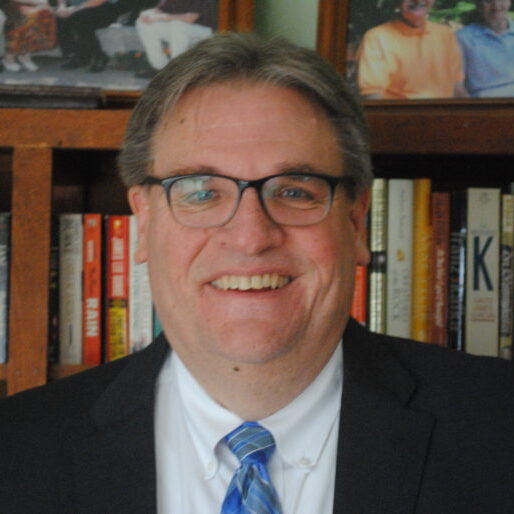Home » Doug Bratt » Authors » Page 46

Rev. Douglas Bratt is a Minister of the Word in the Christian Reformed Church in North America. After serving Christian Reformed churches in Iowa, Michigan and Maryland, he retired in July, 2024. He enjoys spending time with his grandchildren, reading good literature, and watching televised sports in his free time.
Doug began writing sermon commentaries for the CEP website in 2006 and started writing weekly in 2012.
Ecclesiastes 3:1-13
Commentary
1st Sunday after Christmas A
Does anyone know what time it is? The rock group Chicago sang a song entitled, “Does Anybody Know What Time It Is?” It’s about people who have watches but don’t really know what time it is: “People running around everywhere, Don’t know what way to go … Don’t know where I am. Have no time…
Isaiah 52:7-10
Commentary
Christmas Day A
I’ve seen the feet of a few preachers and teachers who proclaim the gospel’s “good news.” Some are big, others are fairly small. Some are quite flat. Preachers and teachers’ feet can even be pretty smelly. But I’m not sure even their closest family members and friends would call them “beautiful.” Yet no one who…
Isaiah 7:10-16
Commentary
Advent 4A
Human life is full of signs. A number painted on metal rectangle indicates the legal speed limit on a road or highway. Twin golden arches are a sign of the culinary paradise that awaits you at the next exit. Yet once you leave a highway, you find even more signs: A figure with pants on…
Isaiah 35:1-10
Commentary
Advent 3A
With the words, “This text shouldn’t be here,” my colleague Barbara Lundblad begins a thoughtful presentation on Isaiah 35. After all, as she points out, it’s not just that this text doesn’t address anyone by name. It’s also that it almost immediately follows a poem that’s full of images of creational disaster: “Edom’s streams will…
Isaiah 11:1-10
Commentary
Advent 2A
Some people claim the theologian Karl Barth said that modern Christians should always have an open Bible in one hand and the daily newspaper in the other. It’s advice that remains as good today as when Barth first offered it. So those who preach and teach this Sunday’s Old Testament text the Lectionary appoints might…
Isaiah 2:1-5
Commentary
Advent 1A
How can we experience peace in a world that’s so desperately short on it? It’s a question both as ancient as our first parents’ fall into sin and as modern as ongoing war in places like parts of the Middle East. Some people assumed that we’d finally figure out how to have peace during the…
Jeremiah 23:1-6
Commentary
Proper 29C
Because Jeremiah 23 is about leadership, Americans may not have to squint very hard to see parallels between it and their current political situation. Having survived a bruising presidential campaign, they (as well as citizens of all nations) may even be ready to hear the gospel that God embeds in this text. Jeremiah 23 begins…
Isaiah 65:17-25
Commentary
Proper 28C
The “heavens and … earth” that Isaiah 65 describes are clearly “new.” After all, they’re radically unlike the ones we know here and now. In fact, the prophet’s picture of them is so earthly and yet different from what we now experience that it almost makes us weep with longing for what Isaiah’s vision symbolizes….
Haggai 1:15b-2:9
Commentary
Proper 27C
How can people build a home for God that fully reflects his glory? That’s the question with which Israel wrestles in the Old Testament text the Lectionary appoints for this Sunday. However, it’s also an issue with which modern Christians also struggle, though we know that God no longer lives in buildings, but in human…
Jeremiah 31:27-34
Commentary
Proper 24C
Comments, Observations, and Questions to Consider I am not sure why the Revised Common Lectionary’s series of passages from Jeremiah skips around the way it does (one week Jeremiah 32 but then next time around it’s back to chapter 29 and now we leap to chapter 31) but I think I can understand why the…

About Doug Bratt